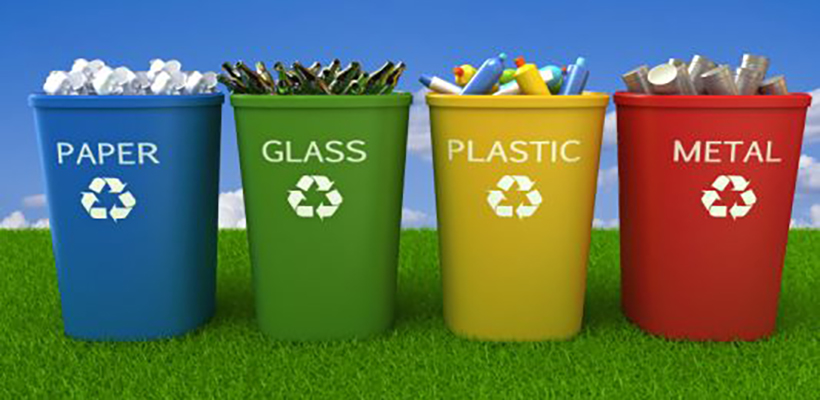What Do We Recycle?
METALS
The environmental and economic impacts of recycling soda cans, food cans and other aluminum products are enormous.
Generally accepted items include:
- Tin cans
- Aluminum cans
- Steel cans
RECYCLES INTO:
Shredded cans are melted down, poured into cases, chilled, rolled out and eventually made into new cans. Recycled metals can also become part of new machinery and other equipments.
RIGID PLASTICS / BOTTLES
Recycling plastics helps conserve fossil resources and saves landfill space. Plastic bottles are shred into flakes used for filling in sleeping bags, fleece jackets, carpets and insulation, while jugs and tubs are readily recyclable into new laundry detergent bottles, pens, picnic tables, fencing, and recycling containers.
WHAT TO RECYCLE
Not all types of plastics can be recycled. Today, it is best to recycle by shape: all bottles, jars, jugs and tubs, as those materials are most likely to be made of plastics that truly can be recycled.
PAPER / CARDBOARD
Paper products make up a majority of the municipal waste stream.
Generally accepted items include:
- Office paper Magazines Flattened cardboard
- Newspaper Phonebooks Flattened cereal boxes
- Junk mail Paperboard Flattened snack boxes
RECYCLES INTO:
Paper collected for recycling is sorted, graded and taken to a paper mill. From here, pulp is created and then screened, cleaned and turned into new paper.
GLASS
Glass makes up a large component of household waste due to its weight and density. Every metric ton of glass recycled saves nearly 700 pounds of carbon dioxide from being released into the atmosphere.
Generally accepted items include:
- Food containers and jars
- Soft drink and beer bottles
- Wine and liquor bottles
RECYCLES INTO:
Glass is virtually infinitely recyclable and can become a new glass container with no loss in quality – conserving raw materials, reducing energy consumption and reducing waste sent to landfills.

